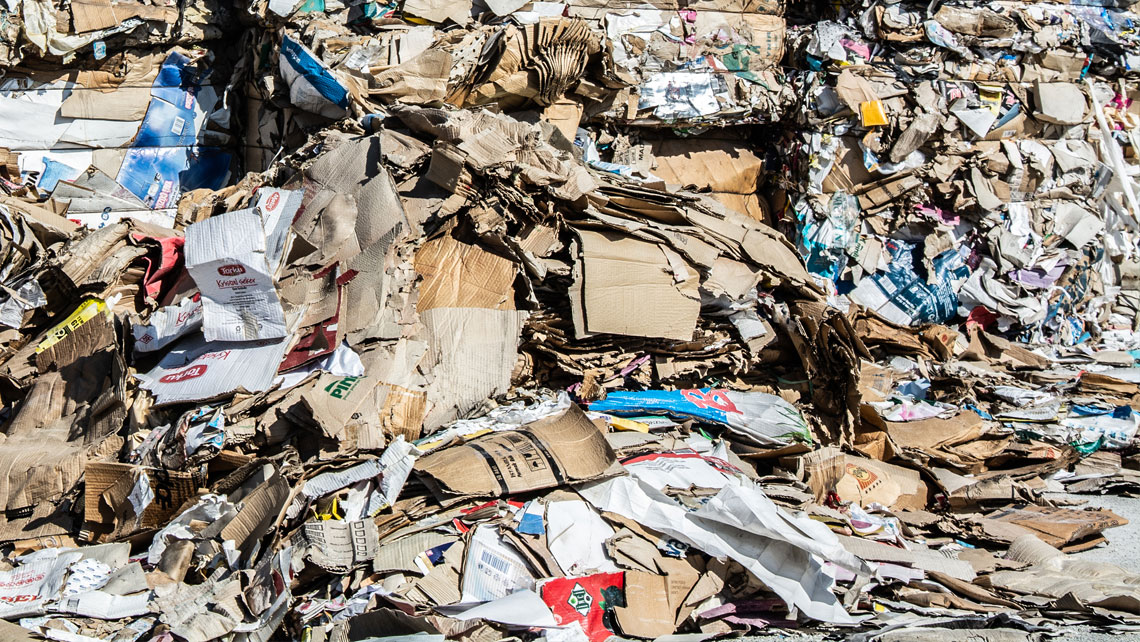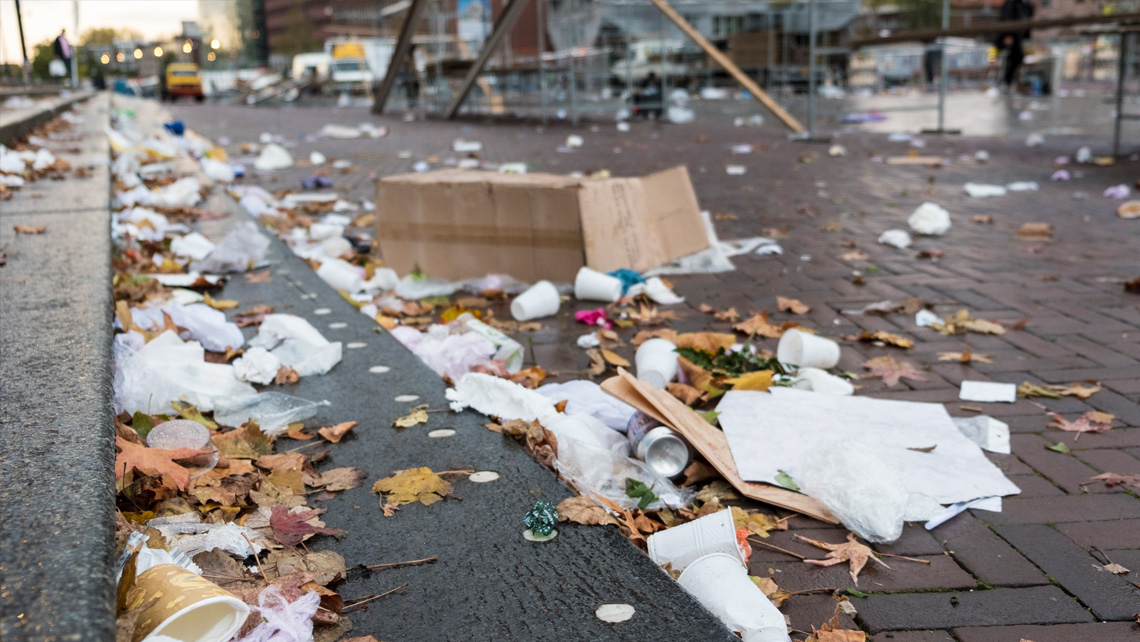For some materials the case for recycling is abundantly clear as it’s cost effective, environmentally beneficial, and there is a market for the raw materials. Paper and cardboard fall into this category, meaning it’s not only important to sort and recycle these materials, but also to favor packaging made of paper and carton board instead of plastics. Metals also fall into this category – for example, recycling aluminum takes 95% less energy than creating new aluminum. Metals also have the added advantage of creating a closed loop system, where products made of recycled materials can be recycled again and again without loss of quality.
Not so plastic fantastic
When it comes to plastic and glass bottles, it also takes less energy to recycle them than to create new plastic and glass from virgin materials (up to 75% less for plastic, and about 20% for glass). However, plastic typically doesn’t make a closed loop. The reason is that sorting and refining plastic back into a food-quality grade is currently too expensive, so plastic bottles are often recycled into a lower-quality plastic that can’t be recycled again.
Manufacturing from recycled materials saves energy compared to creating new products
One important point to note is that transport is factored into modern product lifecycle cost calculations, meaning that even when you include the emissions from transport, on balance manufacturing from recycled materials saves energy compared to creating new products. Another point to consider to ensure the maximum benefit from your recycling, is using as little (cold) water as possible when rinsing out containers – the energy it takes to heat up water increases the carbon footprint of the process.
Is recycling a cheaper option?
The economic benefits of recycling are more contentious, with advocates saying it’s cheaper and skeptics saying it’s more expensive. The answer is “it depends.” A big portion of the costs of recycling are related to labor – such as transport and processing – and labor costs vary tremendously between, and even within, countries. The material in question also influences the total cost, and a municipality’s recycling policies also matter. If recycling is overly complicated, less people do it, reducing economies of scale. If multiple curbside pickups are needed, transport costs increase, making recycling less economically viable.
Luckily, advancing technology has improved the automatic sorting of waste, meaning programs can be simplified and all waste collected together, which both increases participation and reduces overall costs.
What we really need to do is reduce and reuse – and start thinking circular
Recycling helps to avoid emissions and save energy compared to new production. But given that the exact benefits depend a lot on the materials, the location, and the recycling program, in reality we’d all do better to consume less in the first place. Recycling is, however, an essential building block of circular economies, which seek to eliminate waste from products and processes altogether, or at the very least reuse it to make new products.
In practice, reducing means actions like buying only the food you will consume or the products you really need to cut down on unnecessary waste. Reusing something you already have at home, like plastic bottles, instead of always buying new also helps to cut down on waste.
On balance, recycling is a key part of any disposal scheme. Recycling helps to answer our growing concern about our impact on the environment by conserving natural resources, saving energy, and reducing greenhouse gas emissions. Waste that is properly recycled isn’t ending up in the earth or in the ocean, so go ahead and sort that garbage.
Sources:
Popular Mechanics – Is Recycling Worth It? PM Investigates its Economic and Environmental Impact
ThoughtCo. – Do the Benefits of Recycling Outweigh the Costs?
Renewable Resources Coalition – Advantages & Disadvantages of Recycling


